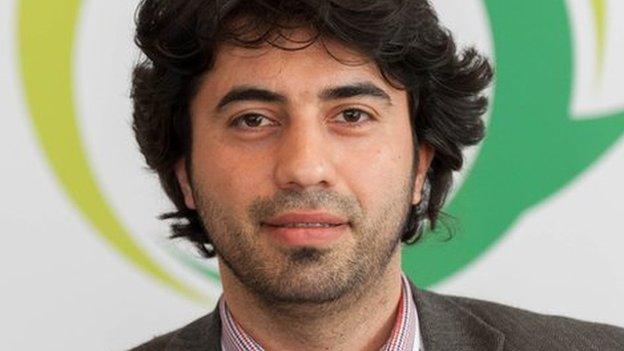Azerbaijan 'operated secret $3bn secret slush fund'
- Published
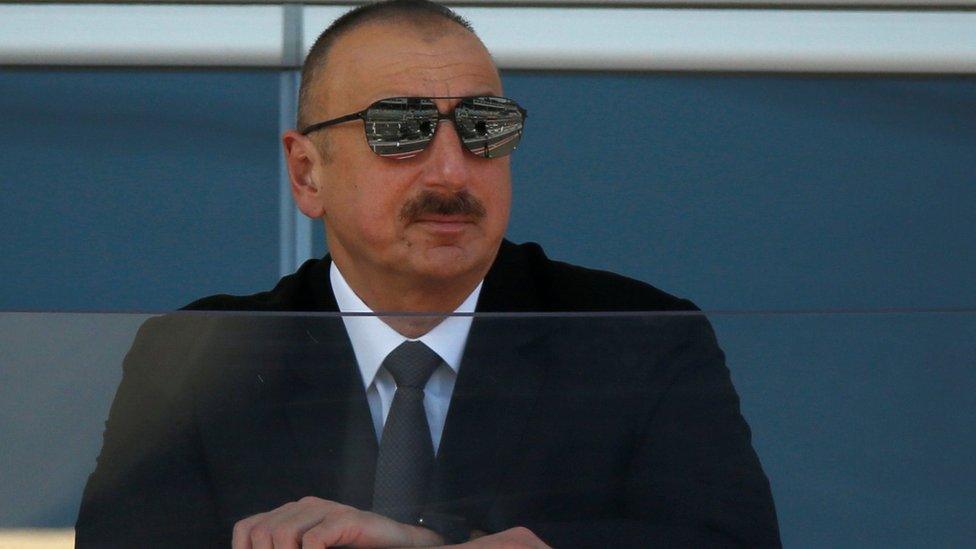
There is evidence that the scheme was linked to President Aliyev, the report says
Azerbaijan's ruling elite operated a secret $2.8bn (£2.2bn) slush fund for two years to pay off European politicians and make luxury purchases, an investigation suggests.
The money was allegedly channelled through four UK-based opaque companies.
People said to have been paid include European politicians who adopted a favourable attitude to the government.
There is no suggestion that all the recipients were aware of the original source of the money, the report said.
The investigation into the alleged secret fund, nicknamed the Azerbaijani Laundromat, was carried out by a consortium of European newspapers and published by the Organized Crime and Corruption Reporting Project (OCCRP)., external
The report alleges that there is evidence of a link between the fund and Azerbaijan's President Ilham Aliyev.
President Aliyev has denied any involvement or wrongdoing.
"Attempts to link the president and his family are baseless, malicious and are of a provocative nature," the president's office said in a statement on Tuesday.
The statement accused financier George Soros, whose Open Society Institute supports the OCCRP report, of being a "fraud" and a "fake" and called for the report's findings to be "investigated".
What is Azerbaijani Laundromat?
According to the OCCRP, the scheme was used by Azerbaijan's ruling elite to launder funds through a series of shell companies in order to disguise their origin.
It was allegedly used as a slush fund to pay people who served their interests.
Azerbaijani Laundromat operated over a period of two years from 2012 to 2014, the OCCRP says.
The money was channelled through four opaque UK companies; two based in England and two in Scotland. These companies have since been dissolved, according to the report, external.
The funds, managed by the UK companies, made their way to various countries including Germany, France, Turkey, Iran and Kazakhstan.
The payments were sometimes repetitive, the report adds.
Where did the money come from?
The source of the funds is unclear, but the investigation alleges that there is "ample evidence of its connection to the family of President Ilham Aliyev".
The OCCRP report says that the money appeared to originate in Azeri and Russian government circles.
Some of the funds came directly from the Azerbaijani government, the investigation says.

History of intolerance
By Rayhan Demetrie, BBC News
In 2012, a Berlin-based think-tank, the European Stability Initiative, published a report titled Caviar Diplomacy: How Azerbaijan silenced the Council of Europe.
The report detailed efforts by Azeri officials to win the "hearts and minds" of the Council's members by giving luxurious gifts such as silk carpets, electronic gadgets, black caviar and money in exchange for supporting Azerbaijan.
The 47-member council - not part of the European Union - monitors compliance with the European Convention on Human Rights, and judges in Strasbourg enforce it.
In 2010 and 2013, Azerbaijan's allegedly rigged parliamentary and presidential elections were praised by members of the Parliamentary Assembly of the Council of Europe (PACE). PACE members in 2013 voted down a human rights report criticising Azerbaijan.
Oil and caviar rich Azerbaijan is one of the world's most authoritarian nations, where dissent is not tolerated and most government critics are either in jail or have been forced to leave the country.

The country's ministry of emergency situations, ministry of defence and intelligence service are said to have provided $9m to the scheme.
A Russian arms exports agency, Rosoboronexport, provided $29m, according to OCCRP.
But almost half of the money, $1.4bn, came from private Baku-based company Baktelekom MMC, which bears no relation to the mobile phone giant Baktelecom.
Offshore companies, usually registered in the UK with "proxy directors and shareholders", also allegedly contributed.
Where did the money go?
Much of the money is said to have been paid to European politicians, lobbyists, journalists and businessmen.
At the time the alleged scheme, the oil-rich ex-Soviet state was accused of systematic corruption, vote-rigging and abuses, including the jailing of opposition politicians, human rights activists and journalists.
The OCCRP report says the money "bought silence".
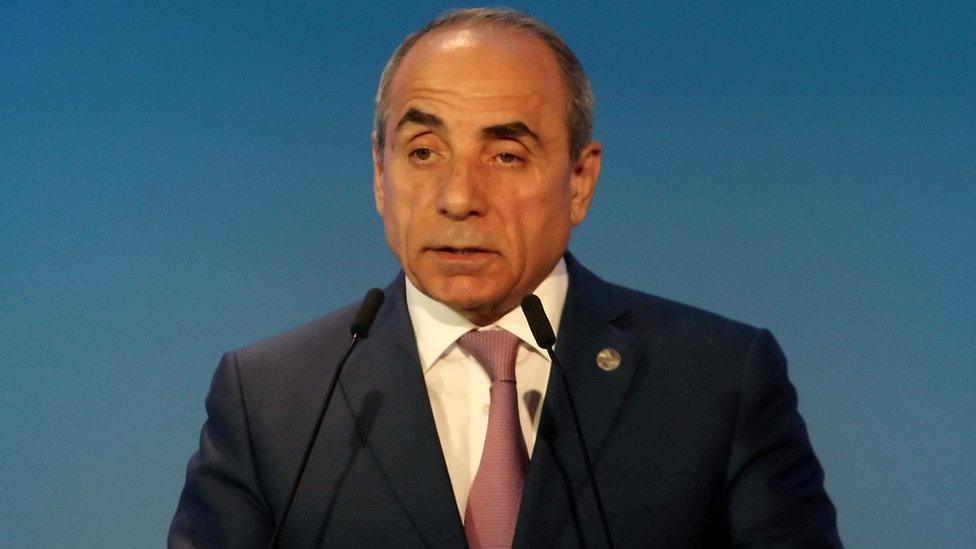
Azerbaijan's Deputy Prime Minister, Yaqub Eyyubov, is said to have benefitted from the scheme
Recipients are said to include the family of Azerbaijan's Deputy Prime Minister, Yaqub Eyyubov, along with lobbyists tasked with tackling corruption in the country and members of parliament with links to businesses, such as pharmaceutical companies.
Mr Eyyubov has not yet commented on the report's findings.
The funds, the investigation says, were also used by the political elite in the capital, Baku, to purchase luxury items including private education for well-connected Azeri families living abroad.
"Over 13,000" banking transactions were leaked to the media, according to the report.
They show that millions of dollars in accounts of companies and individuals across the world were spent at luxury car dealerships, football clubs, travel agencies and hospitals, it adds.
Who was involved?
One of Europe's leading banks, Danske Bank from Denmark, processed the payments to those companies via its branch office in Estonia. It admitted it had not done enough to spot suspicious transactions.
At least three European politicians, a journalist and a number of businessmen who praised the government were said to be among the recipients of the Azerbaijani Laundromat money.
The four UK-based companies allegedly used to channel the funds were linked to anonymous tax haven entities based in the British Virgin Islands, Seychelles and Belize.
According to the OCCRP report, external, the companies involved were: Polux Management and Hilux Services, which were set up in Glasgow; Metastar Invest in Birmingham; and LCM Alliance in Potters Bar, Hertfordshire.
The investigation suggests that because numerous payments were made to several "secretive shell companies" in the UK, the scheme's reach may have been much larger than is currently known.
Was it successful?
According to the OCCRP, the scheme seemed to have been successful in, for example, persuading the Parliamentary Assembly of Council of Europe to vote against a report critical of Azerbaijan in 2013.
The vote is currently under investigation and a report is expected by the end of the year.
- Published13 February 2024
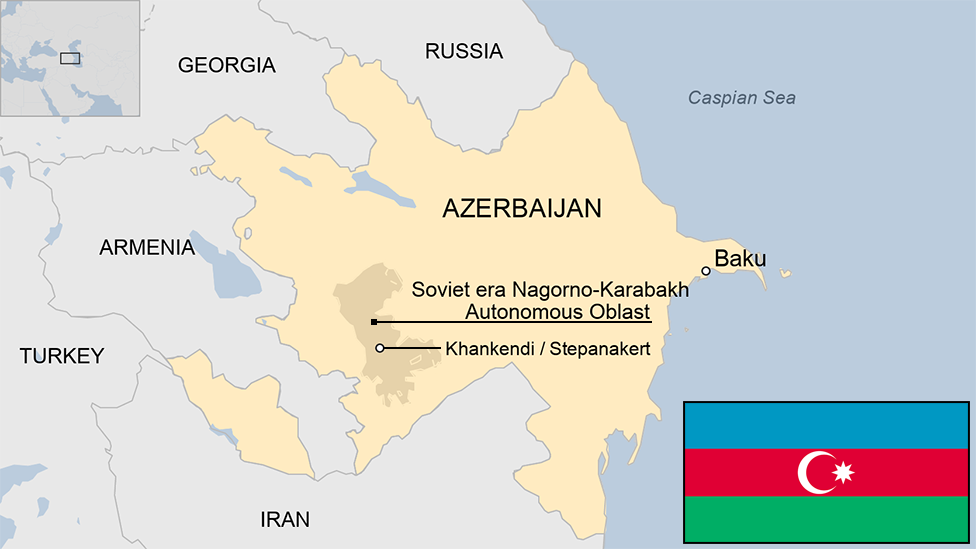
- Published30 May 2017
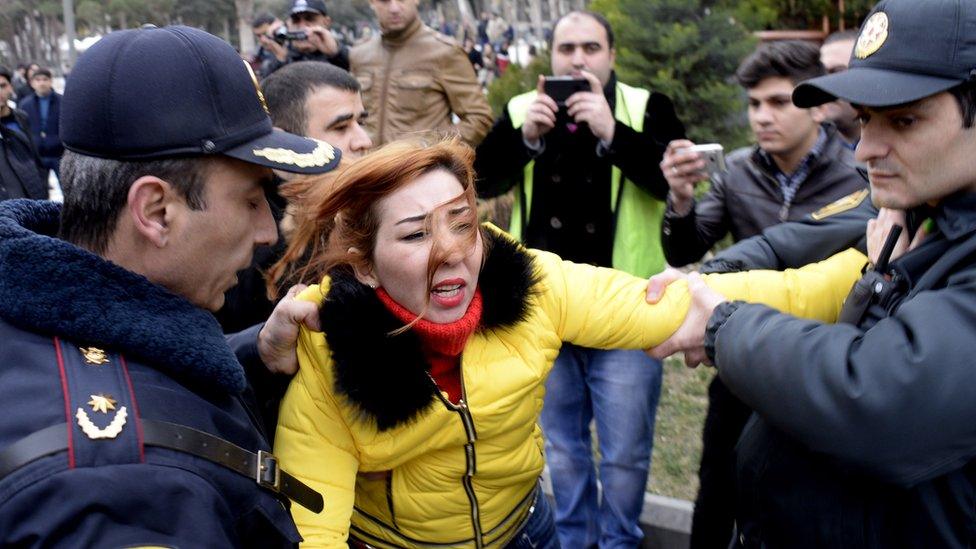
- Published1 December 2016
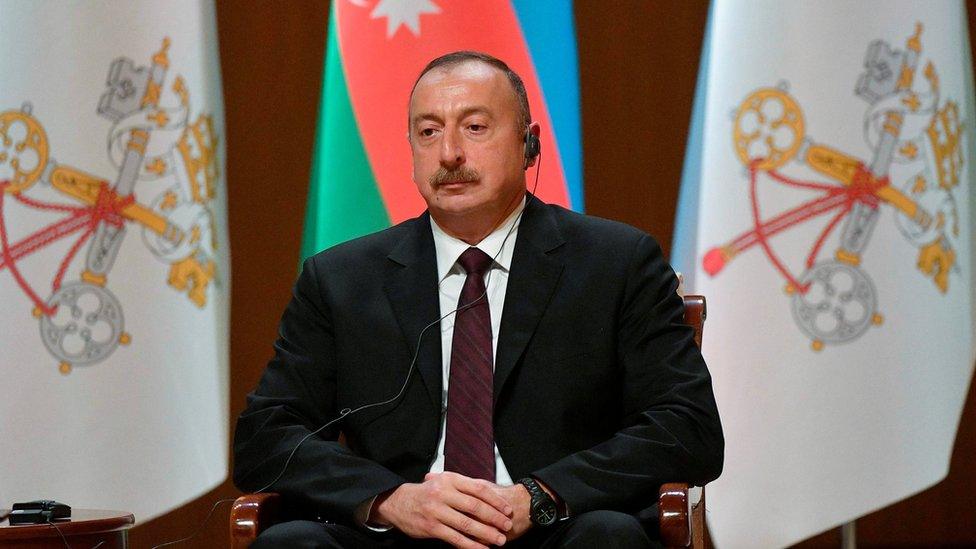
- Published1 September 2015
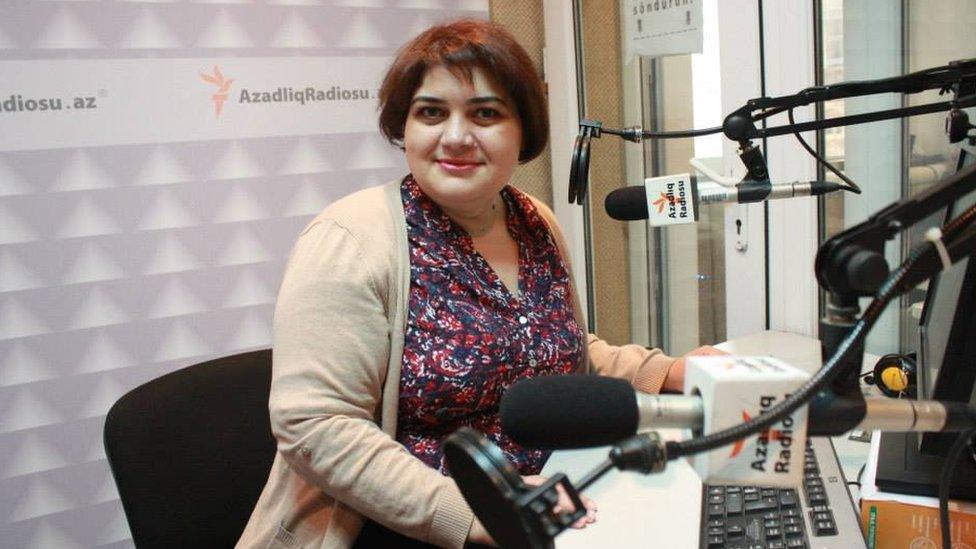
- Published17 February 2015
